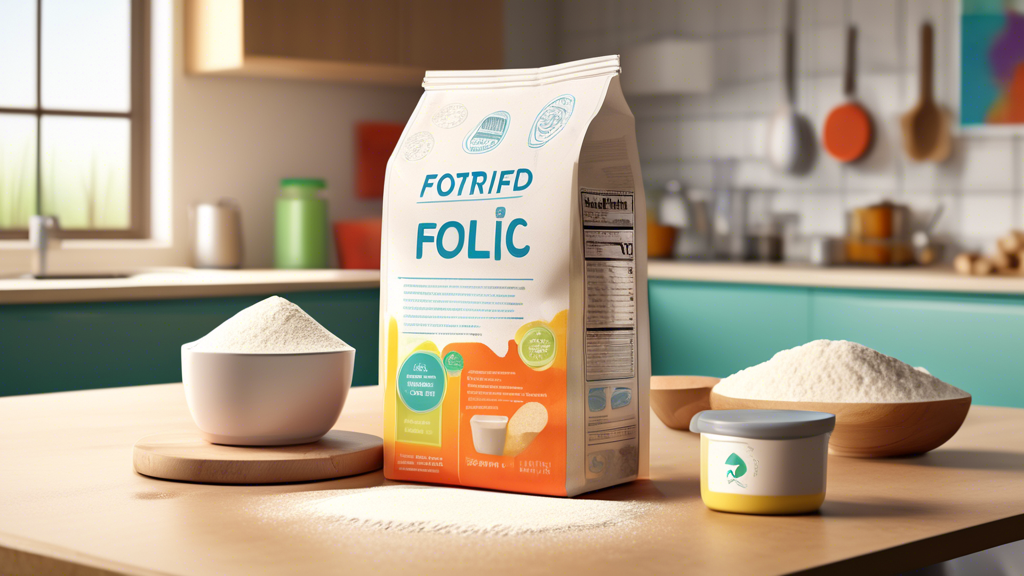
US Government Advances Flour Fortification with Folic Acid
Share
Overview of Flour Fortification with Folic Acid in the US
In recent years, the United States government has made significant strides in enhancing the nutritional quality of flour by mandating the fortification of this essential staple with folic acid. This public health initiative aims to combat congenital disabilities and improve the overall health of the nation's population.
The Importance of Folic Acid
Folic acid, a synthetic form of the naturally occurring folate, is a B-vitamin essential for DNA synthesis, cell division, and overall growth and development. Pregnant women, in particular, require higher levels of folic acid to prevent neural tube defects (NTDs) such as spina bifida and anencephaly in their babies. Inadequate intake of this vitamin can lead to severe health complications.
Historical Context of Flour Fortification
The concept of fortifying food to improve public health is not new. The fortification of salt with iodine began in 1924 to prevent goiter, a thyroid gland condition. Similarly, the addition of vitamins A and D to milk and margarine has been a successful public health intervention. However, the fortification of flour with folic acid, specifically, has a more recent history.
In 1998, the U.S. Food and Drug Administration (FDA) mandated the addition of folic acid to enriched grain products, including breads, cereals, flours, and rice, with the primary aim of reducing NTDs. This regulatory action was based on extensive research indicating that increased folic acid intake could significantly lower the incidence of these birth defects.
Current Advancements in Fortification Policies
New Regulations and Guidelines
The US government, spearheaded by the FDA and the Centers for Disease Control and Prevention (CDC), continues to refine its guidelines and policies to further optimize folic acid fortification. Recent advancements include updated recommendations on folic acid levels and enhanced monitoring systems to ensure compliance and efficacy.
The FDA has increased the recommended daily intake for women of childbearing age to 400 micrograms (mcg), emphasizing that fortified flour and grain products can help achieve this dietary target. These updated guidelines reflect the evolving understanding of folic acid's role in prenatal health and other physiological functions.
Impacts on Public Health
The impact of folic acid fortification on public health has been profound. According to data from the CDC, the incidence of neural tube defects in the United States has decreased by approximately 35% since the implementation of mandatory folic acid fortification in 1998. This significant reduction underscores the importance of continued and enhanced fortification efforts.
Ongoing Research and Future Directions
Research into Additional Health Benefits
Current research indicates that folic acid fortification might have additional health benefits beyond the prevention of NTDs. Studies are exploring its role in reducing the risk of cardiovascular diseases, certain cancers, and cognitive decline in older adults. While these potential benefits are promising, further research is needed to solidify these findings.
Global Perspective
The success of folic acid fortification in the US has inspired other countries to adopt similar measures. Countries such as Canada, Costa Rica, and Chile have implemented mandatory folic acid fortification with comparable public health outcomes. The global adoption of these measures highlights the universal importance of folic acid in human health.
Conclusion
The US government's advancements in flour fortification with folic acid represent a significant public health success story. Through ongoing research, updated regulations, and a commitment to improving nutritional standards, the US continues to lead efforts in preventing birth defects and enhancing overall health. As the science evolves and new discoveries are made, it is likely that folic acid fortification policies will continue to adapt and improve, ensuring that the health benefits are maximized for future generations.
For more information about folic acid fortification and its health benefits, visit the CDC's official website.
Discover Americas #1 Organic All Natural Vitamin & Supplement Brand
